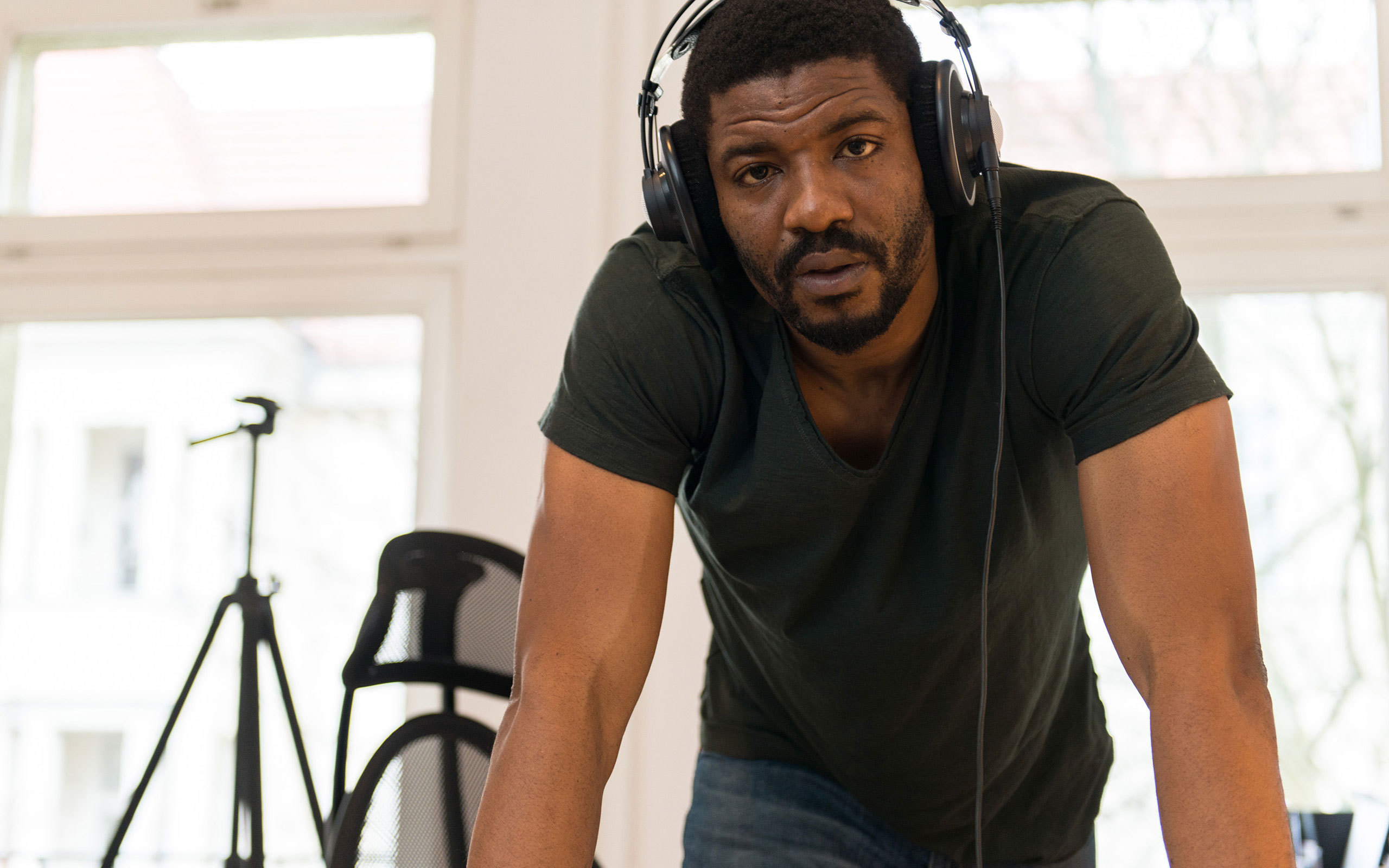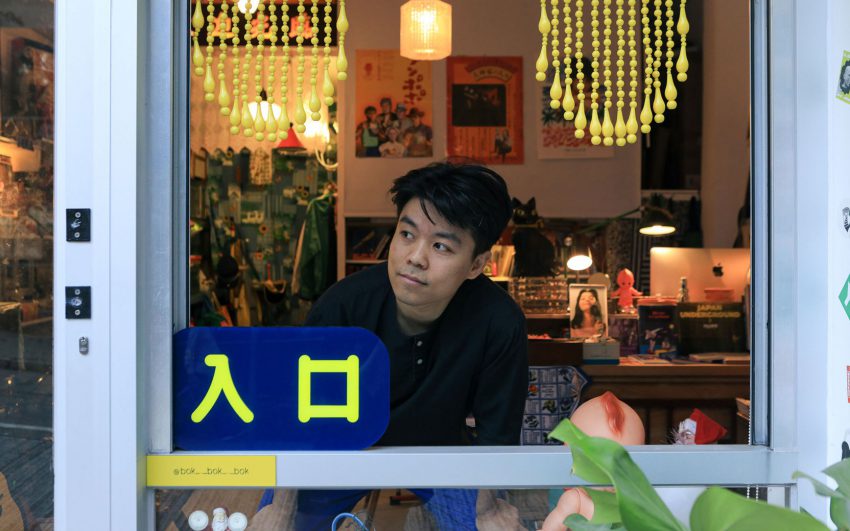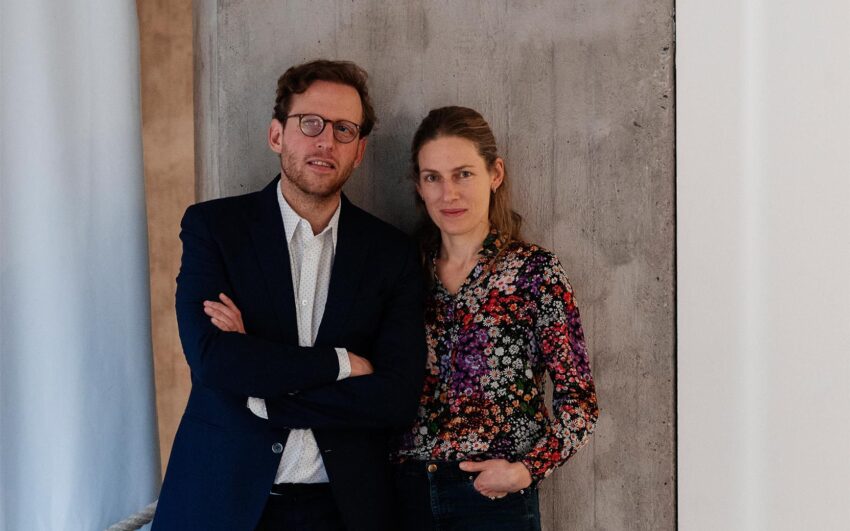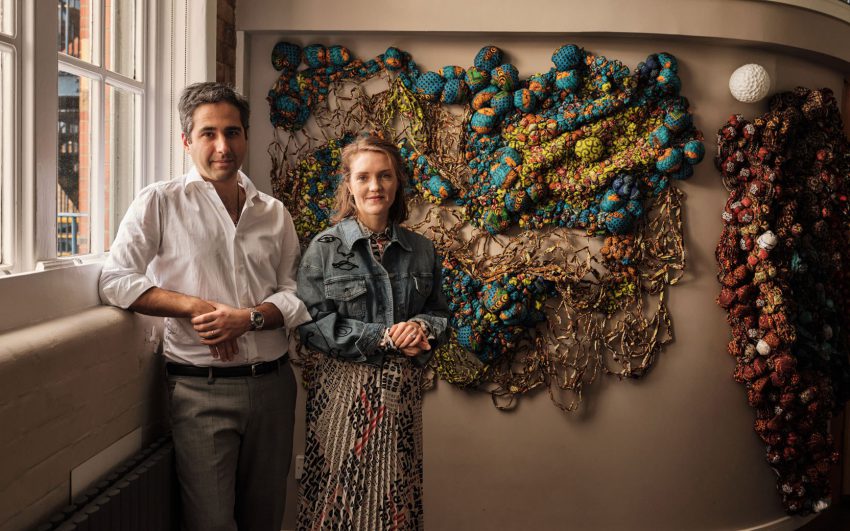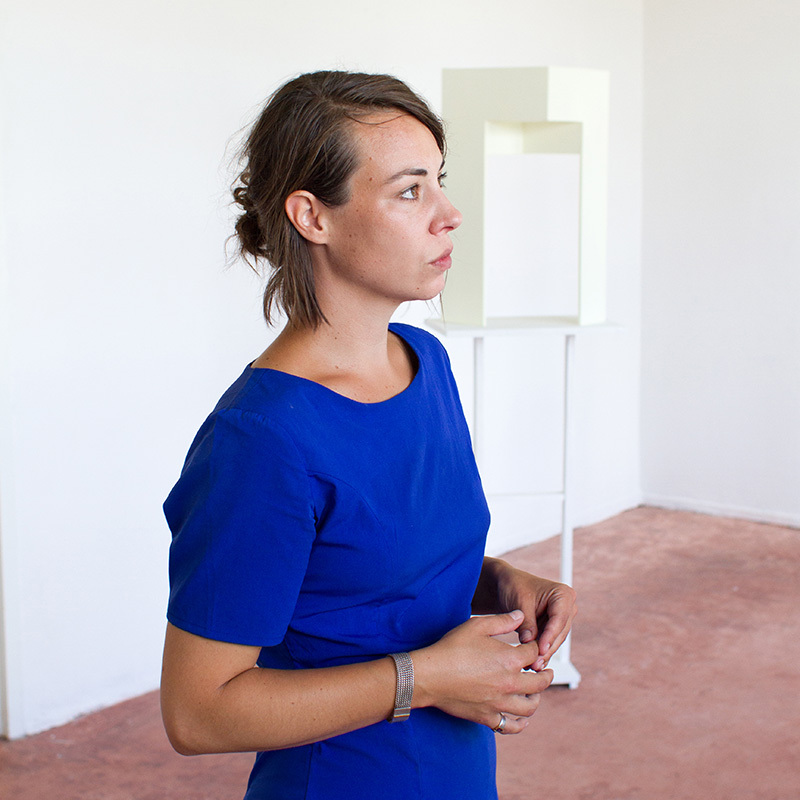While most of us take in the world with our eyes, Nigeria-born sound and installation artist Emeka Ogboh connects to places with his senses of hearing and taste, and in doing so offers an alternative to conventional representations of urban life. He is best known for his experimental soundscapes that animate the experience of living in contemporary Lagos. In 2015, he participated in the title exhibition of the Venice Biennale, All the World's Futures. This year, Emeka is completing a marathon of presentations of international acclaim, including documenta 14 in Athens and Kassel. His Berlin studio is surprisingly spartan, equipped with nothing more than a table, a computer with a large external hard drive, audio speakers, and an assortment of catalogs. From outside nothing but natural sounds enter the room…
Emeka, you came to Berlin on a DAAD-residency in 2014/2015 and decided to stay. What have your experiences in Berlin been like? How do you perceive the city, especially in an artistic and cultural context?
Berlin has been a great experience so far. The city is very diverse, and this can be found in its art and culinary scenes. With lots of local and international exhibitions and art-related events going on, living in the city has exposed me to a lot of new art. I have also met and interacted with people from different parts of the world and backgrounds, which has expanded my knowledge and allowed me to make new connections internationally. I have focused on discovering food and music, and through this I have experienced a lot of different cultures in the city. I have to say that Berlin has been very stimulating so far.
To what extent has Berlin been stimulating for your artistic practice?
The city has had a big impact on my artistic practice. My interest in collaborating with composers grew in Berlin, so did my exploration of audio archives. My recent work with beer brewing and branding was also activated by being in Berlin.
You have mentioned food a couple of times already. One gets the impression that food is of particular importance to you. Can you tell us why?
Asides from nourishment and satisfying hunger, food is also a way to connect to where I come from, and to different regions of the world. We eat to remember, and we also get to travel to various parts of the world through our taste buds and olfactory organs.
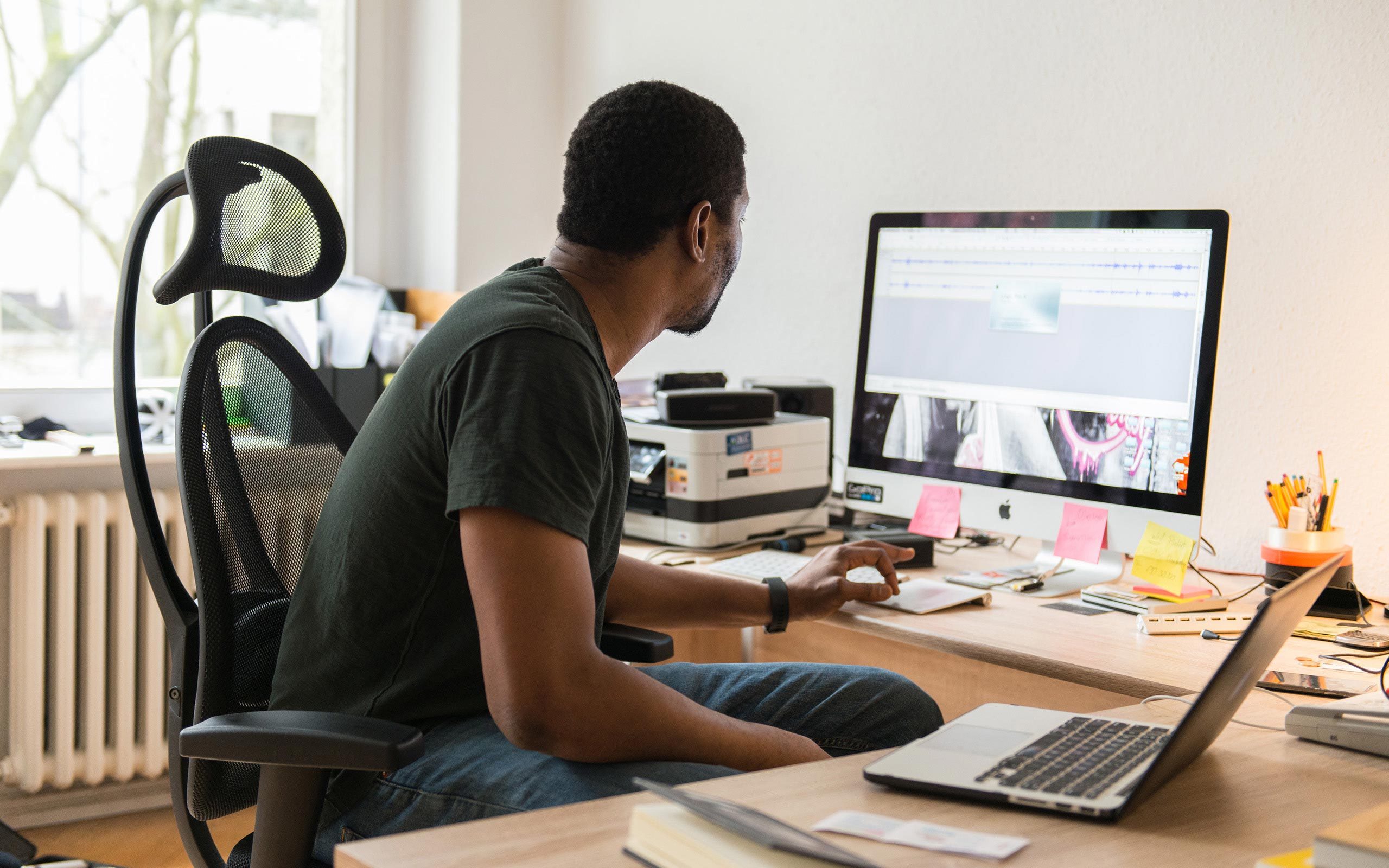
Your main medium is sound. Why does sound represent such a powerful force to you? To answer your question, I’ll quote an excerpt from Brandon LaBelle’s essay Auditory Relations: “Sound is intrinsically and unignorably relational: it emanates, propagates, communicates, vibrates, and agitates; it leaves a body and enters others; it binds and unhinges, harmonizes and traumatizes; it sends the body moving, the mind dreaming, the air oscillating. It seemingly eludes definition, while having profound effect.” I can relate to this statement.
What does Berlin sound like?
Berlin, sounds of occasional sirens; as in most European cities, sirens are practically the only sound permitted at high decibel level.
What’s your personal Berlin soundtrack?
I have a playlist for Berlin that I listen to whenever I get back to the city, especially while riding back to my apartment from the airport or train station. The music reconnects me to the city, but if I have to randomly choose one song from the list, I would go with A World Without by Phaeleh.
You were born in Enugu, Nigeria and lived in Lagos for a long time. Now you are in Berlin. Where is home for you?
With time, I’ve come to realize that the concept of home is not just of a physical place, but is also something you carry within you. Wherever I feel comfortable is where I consider home. And for me it could be Berlin, Lagos, Enugu, and many other places.
Are you homesick sometimes?
Homesick here would be in relation to missing Nigeria, right?
Its up to you!
Thankfully I’ve been very busy with work. Technology helps keep homesickness at bay, and I’m constantly in touch with family and friends in Nigeria through phone calls, Skype, and messaging apps. Fortunately, I am also able to travel to Nigeria whenever its necessary, when technology is no longer enough and I need to be with my people physically. I’ve also learned to ease home sickness with food and music, organizing what I eat or listen to in order to stay connected with my roots.
What do you miss most about Nigeria?
The ambience and the people, their sense of humor… this positive and confident energy emanating from them. There is a Nigerian vibe that can’t be replicated elsewhere, it is quite unique. I also miss fresh Nigerian food.
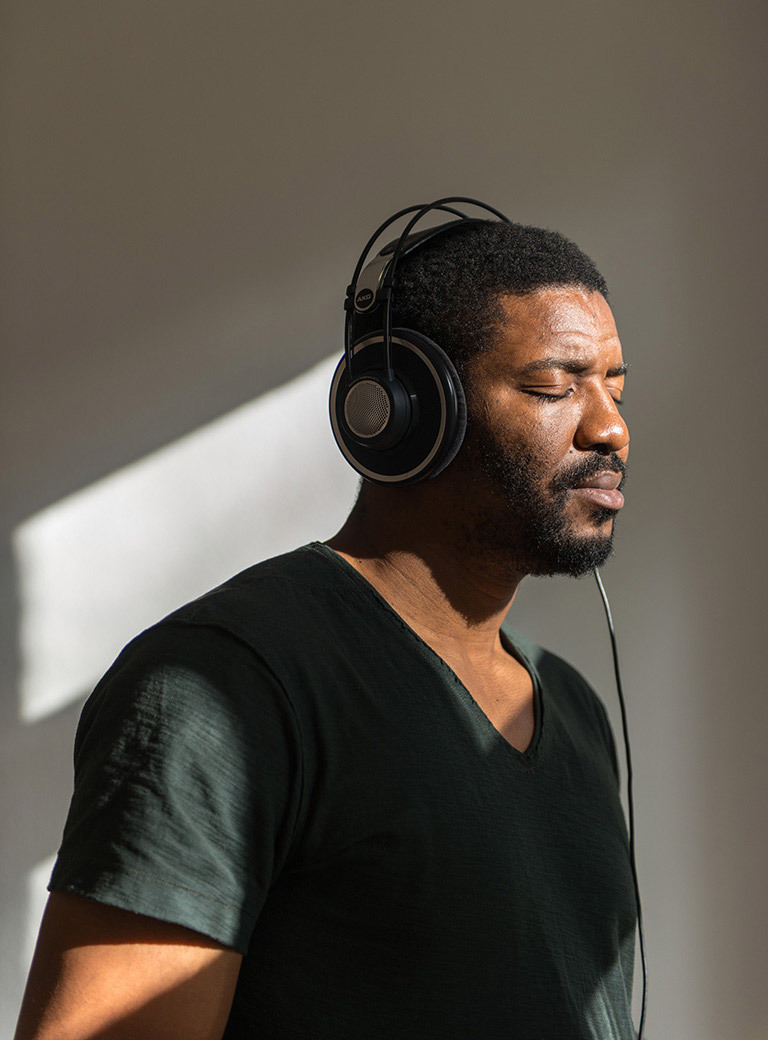
Going back to the beginning of your artistic career, you come from a graphic design background, became an artist just a few years ago. How did you make the shift from graphic design to sound art?
Lagos practically made me a sound artist. But my working with sound started after attending a media class in Fayoum, Egypt in 2008, where the focus of the class was entirely on sound. Attending this class opened up my ears, and, on my return to Lagos, a city rich with multilayers of sound, I slowly eased into exploring the medium and it soon became my main interest. Exploring, listening, recording, and understanding the city through its generated soundscapes, helped shape me to become a sound artist.
What is your personal soundtrack of Lagos?
In terms of music, there is this song Ojuelegba by Wizkid. It’s a feel-good song that embodies the go-getter spirit of Lagos.
So far 2017 has already been a busy year for you: You have been invited to documenta 14 in Athens and Kassel, Skulpturenprojekte in Münster, and other museum exhibitions are already scheduled, including a solo show at the Staatliche Kunsthalle Baden-Baden. Can you give us some insight into what you did for documenta?
For documenta in Athens I created a multimedia installation titled The Way Earthly Things Are Going. It’s a twelve-channel sound installation with LED displays of stock indices from around the world in real time, putting a focus on the financial crisis and its effects. The accompanying sound features a traditional polyphonic song from Epirus, Greece performed by Pleiades, an all-female vocal group, and it’s set in the unfinished auditorium of the Odeion Conservatory. For Kassel I collaborated with CraftBEE to brew a beer, the Sufferhead Kassel edition. It’s a conceptual work that explores being black in Europe through brewing and branding a beer.
And for Münster, and your solo show in Baden-Baden?
For Skulpturenprojekte my work referenced the American composer Moondog, who spent his last years in Münster and is interred in the cemetery there. It is a sixteen-channel sound installation situated at the pedestrian tunnel next to the Münster Hauptbahnhof. The installation is made up of Trimba sounds (a percussion instrument invented by Moondog, and played by Stefan Lakatos) and voices reciting Moondog’s couplets. There’s also a side project on beer (Stadt, Klang und Bier) for Skulpturenprojekte. I worked with Philipp Overberg to craft a beer inspired by the city of Münster, honey ale with lime tree flowers, and fermented to the soundscapes of Lagos. Basically, the yeast during fermentation stage was agitated with the soundscapes of Lagos. The beer is called Quiet Storm, it’s a tale of two cities. The Baden-Baden show is still in the works, I’m now putting down my ideas. I needed to get documenta and Skulpturenprojekte out of the way first.
You are really going places around Germany. How did you like Münster?
Münster unpeeled itself layer by layer with every visit, exposing different dynamics that I hadn’t noticed previously. Making friends with the locals helped this process, it went from bland to pretty much interesting with frequents trips to the city. I looked forward to enjoying its laid-back ambience.
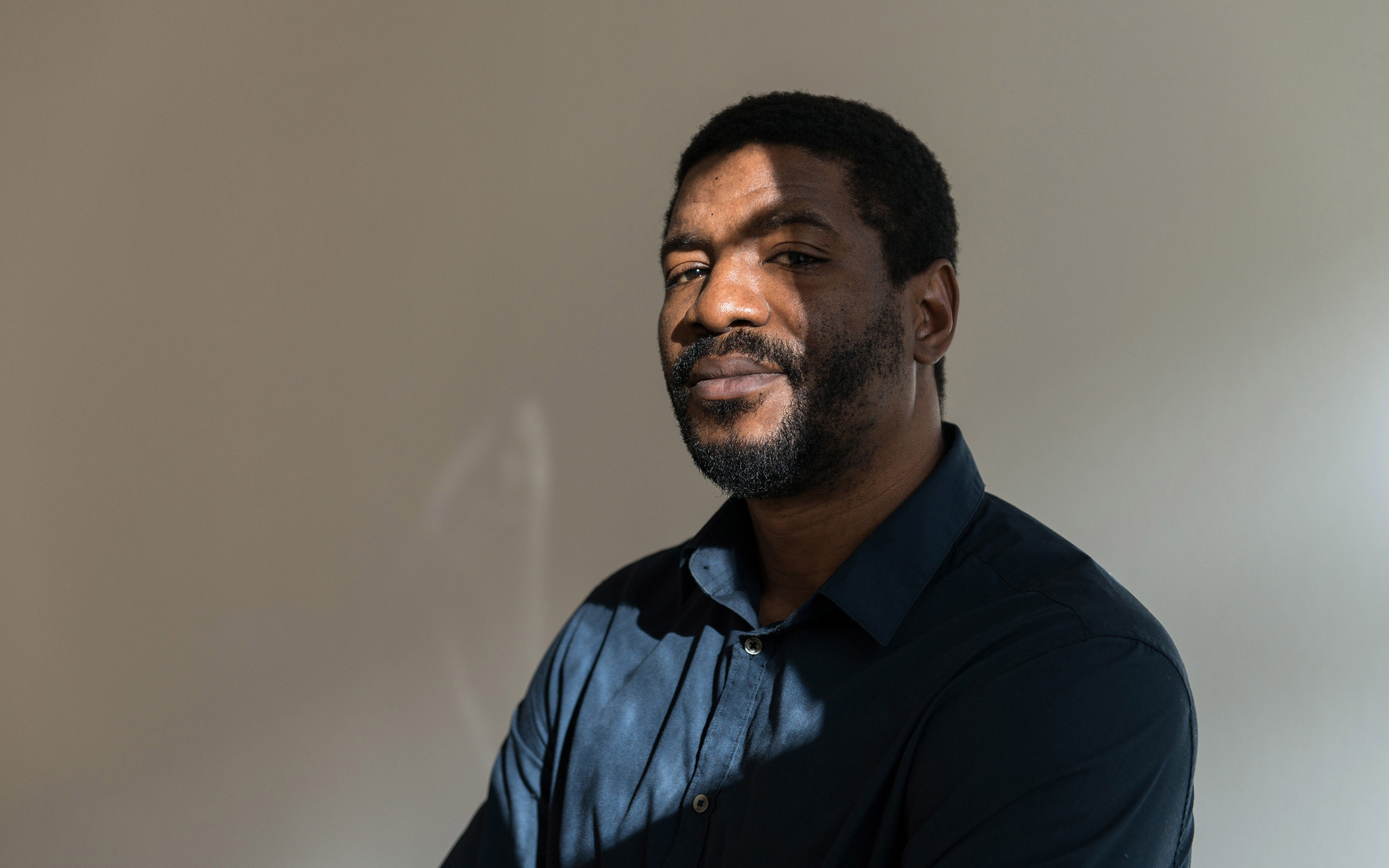
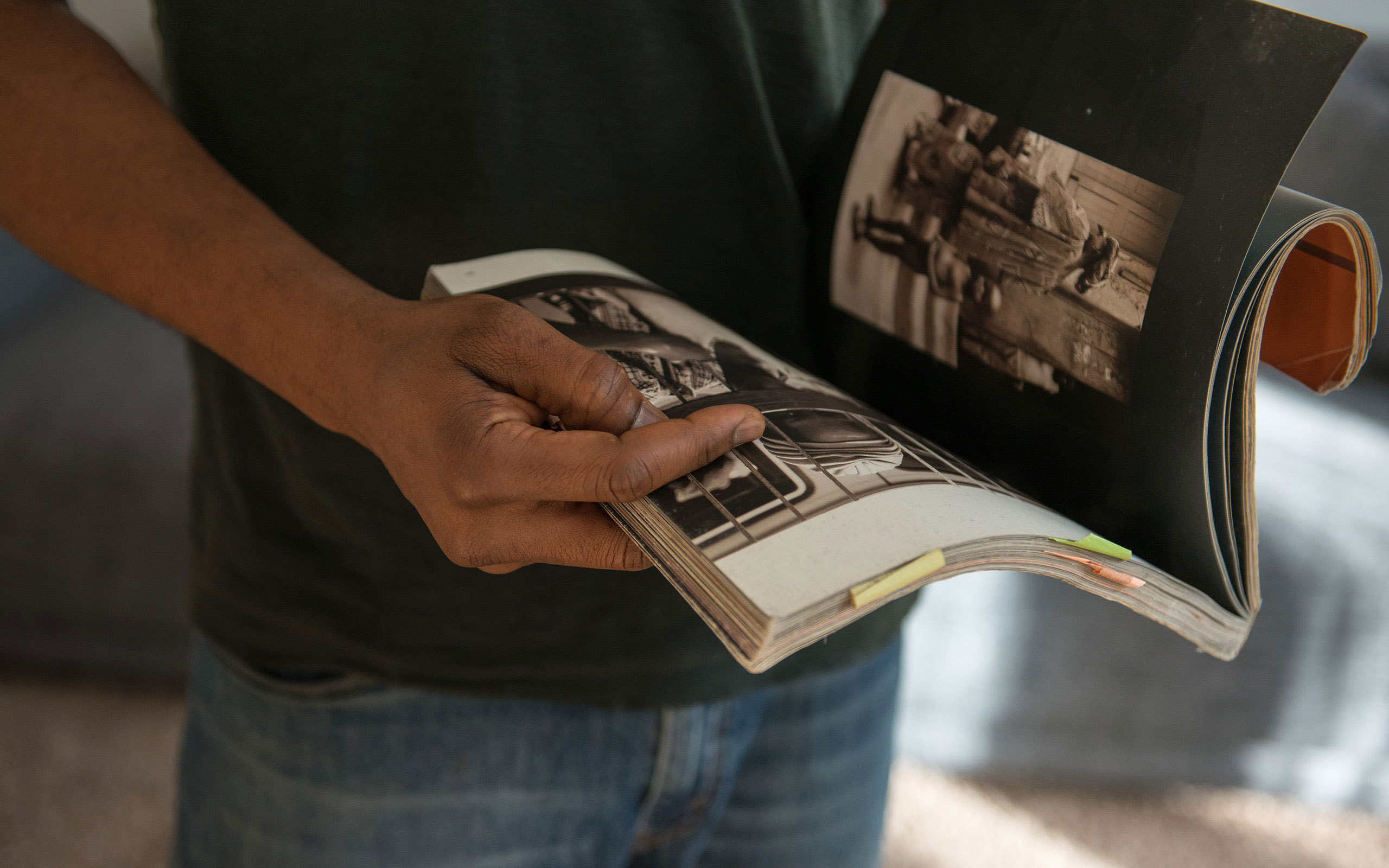
Brewing one’s own beer, as you did in Kassel, is quite an unusual idea. What has beer got to do with the body of your work?
I’m an artist, and I like craft beer, these two had to intersect at some point. Migration is a regular theme in my work, and I realized that I can explore this theme through the act of craft beer brewing, and through the advertisement of the beer. This is what the Sufferhead beer project is about.
Will there be a continuation of Sufferhead?
Sufferhead beer is an ongoing project, the flavor of the beer changes, just like that of the migrant, depending on where it’s brewed. But the project goes beyond beer brewing, when you create a product you also create the possibility to brand the product. Here my graphic design and advertising background comes into play. There will be outdoor ads and TV commercials for the beer coming up next, and we’ll be channeling labels, clichés, and experiences of the African immigrant in Europe into creating advertisements for the beer.
Not only are you developing several major projects simultaneously, you are also receiving increasing attention on the international art scene. These different conditions in work production must be hard to balance. How do you manage to keep on top of it all?
It does become overwhelming sometimes, but being able to find the right balance is the key. I now know how and when to disconnect, when to switch off from work and do something completely different or do nothing. Your mind and body tells you when to do so, you just have to pay attention.
What does your perfect Sunday look like?
A perfect Sunday is all about catching up with relaxation, I need a big couch, Netflix or music, good food, and close family or friends in the mix to do that.
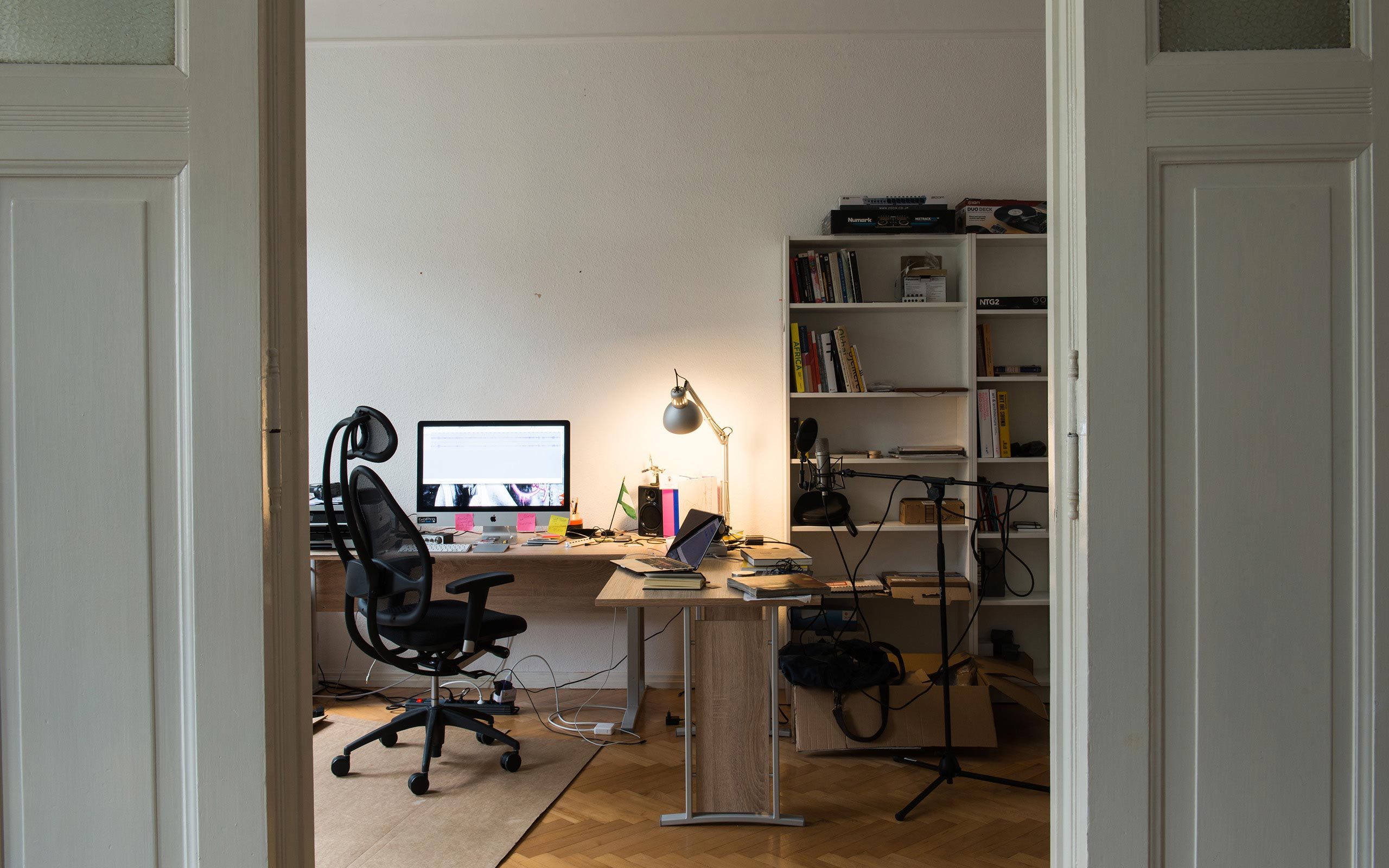
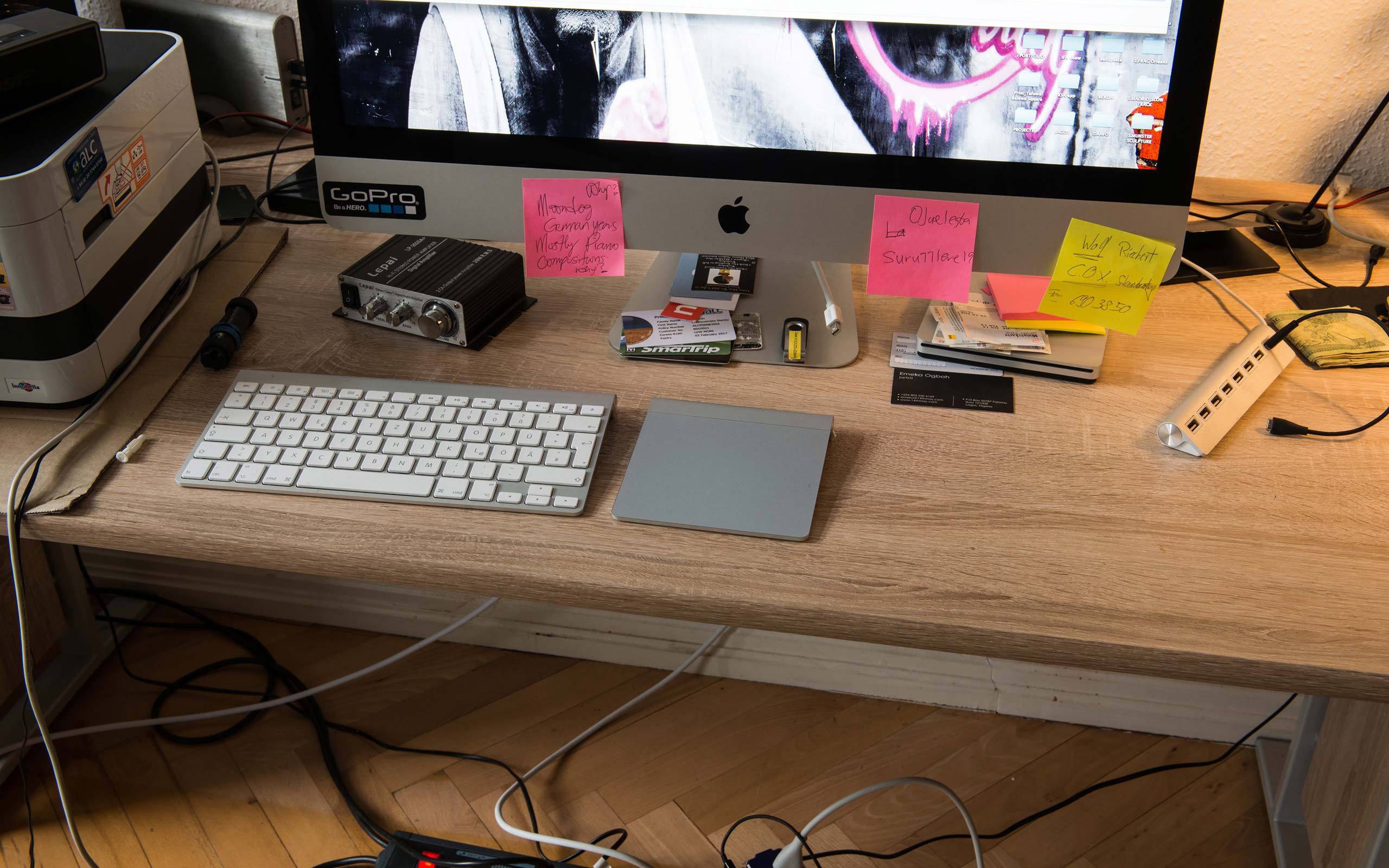
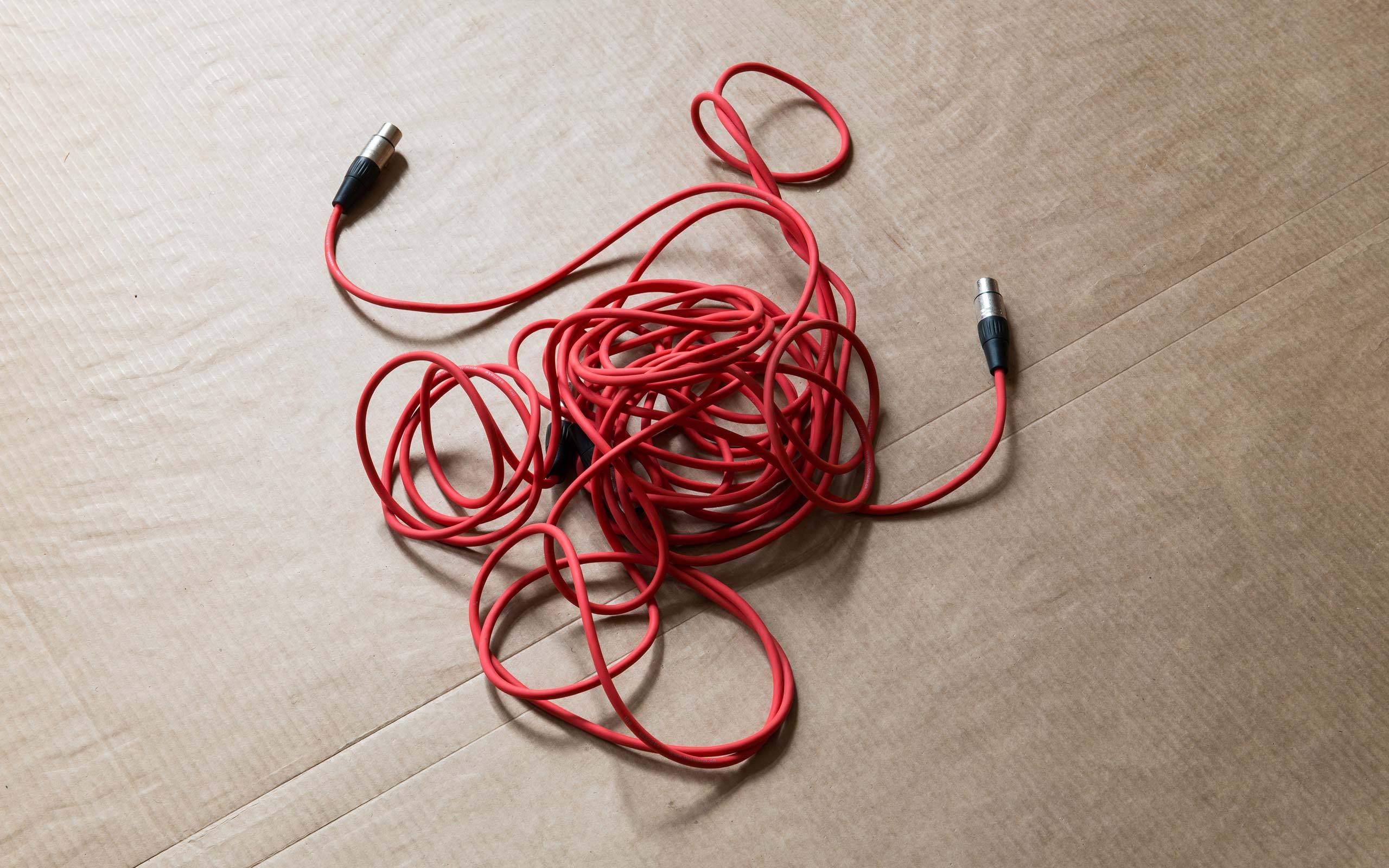
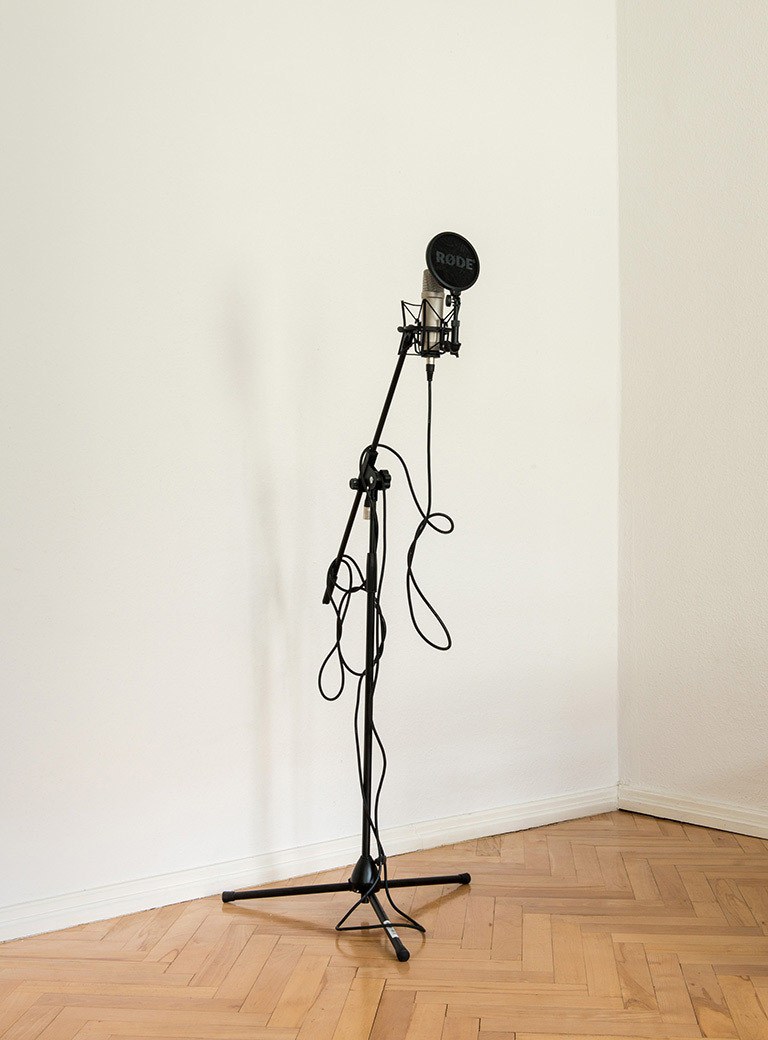
Interview: Julia Rosenbaum
Photos: Michael Danner
Links:


